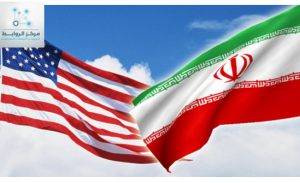The US-Iranian conflict on several issues in the Middle East particularly on Iraq has not prevented them from maintaining the hotline in their relations. According to special information obtained by the Rawabet Center for Research and Strategic Studies that provides , as the Sultanate of Oman was the sponsor of the secret negotiations between the administration of former US President Barack Obama and the Iranian Republic over the nuclear program , the Sultanate is once again sponsoring secret negotiations between the Foreign Ministry of the two countries , and the tension was the dominant feature of those negotiations on the issues that were revolving around them, the negotiations focused on Iran’s ballistic missiles and the thing which has further heated the negotiations is the demands of the American negotiating team from his Iranian counterpart to provide him with accurate and honest information about Iran’s nuclear program and the stage it reached, to stop Iran’s production of long-range missiles and to allow the inspection of its missile factories. This demand is clearly indicated by the negotiating team for its absolute commitment to preserve Israel’s security. The American negotiating team also demanded from its Iranian counterpart, it should not manufacture offensive missiles, only on defensive missiles, and not interfere in the affairs of Arab countries, especially Iraq , but the Iranian side from its part , according to information obtained by Rawabet Center , rejected some of these proposals. At this level of US demands and the Iranian rejection of some of them , the negotiations were ended between the two teams, and returned to their countries for consultations with their political leaders and according to information of the Center if some items are approved , , a second round of negotiations will be held .
Last May, the Trump administration set 12 demands that Iran should implement if it wanted to lift economic sanctions, including withdrawal from Syria, withdrawing all its forces from Syria, stopping Hezbollah’s support in Lebanon, “in addition to stopping support for Hamas and Islamic Jihad. He also asked Iran to stop the flow of its fighters into Iraq, end its support for the Taliban and provide a safe haven to those it described as” terrorists” The release of all American citizens and citizens of America’s allies and the suspension of Tehran’s military support for the Huthi militias in Yemen. Among the demands were opening Iran’s doors and allowing atomic inspectors to enter its facilities, disclose details of its nuclear program and stop production of missile warheads. Foreign Minister Mike Pompey has vowed to impose unprecedented economic sanctions if the demands are not met and policy continues. Pompeo said the system of economic sanctions against Iran would be the strongest in history. “The Iranian regime should know that this is just the beginning, the sanctions will be intensified unless Iran changes its behavior, “adding that Washington will not allow Tehran to control the Middle East.
But Iran at the time rejected US demands and Iran’s National Security Council secretary Ali Shamkhani said : the presence in Iraq and Syria will continue because it was coordinated with the governments of Baghdad and Damascus to fight what he called terrorism. The head of Al Jazeera’s office in Tehran, Abdul Qadir Fayez, quoted Shamkhani as saying that his country would continue to support what he called the axis of resistance in the face of Israeli crimes. Shamkhani stressed that the strategy revealed by Pompeo will not lead to a change in Iran’s policies in the region or the world.
Iranian President Hassan Rouhani rejected the demands made in the speech of the US Secretary of State, saying it was unacceptable for the United States and countries of the world to define what Iran should do; stressing that Tehran would continue its policy with the support of the Iranian people. Foreign ministry of Iran said the strategy of Pompeo based on what it called a package of lies, while the Iranian government spokesman said Washington’s policy over the past years failed to weaken Iran’s defense and economic structure.
Iranian Studies Unit
Rawabet Center for Research and Strategic Studies

